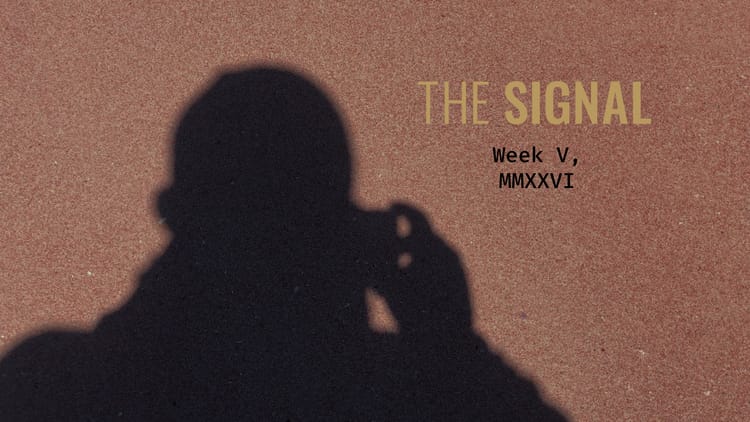The weaponization of everything

+ More developments from around the world. … Books from Dong Zhang, Mingxing Liu, and Victor Shih, on why Beijing, for a time, would have distributed control over its economy; Nicole C. Rust, on why neuroscience hasn’t been more effective in finding treatments for brain disorders; and Tim Weiner, on how new technologies have “shattered the foundations” of traditional intelligence operations. … Music from Soulwax, Nite-Funk, and Baltimora. … & What is Italo disco?
Stefan Eich on what’s driving political attacks against central banks around the world. … Lucan Way, Ben Freeman, Miranda Patrucić, Justin Callais, and Josh Rudolph on whether the world’s autocratic powers are really teaming up against democracies. … & The weather report: 52.4492° N, 158.1953° E …
This week, in the despatch: a striking pattern around the world of institutional mechanisms for governance and commerce repurposed as instruments of conflict. The president of the United States is now wielding tariffs not for trade policy but to intervene in Brazil’s judicial system, demanding the end of prosecutions in exchange for economic relief. China and Russia have transformed everyday infrastructure into espionage platforms, turning hotel databases, telecommunications networks, and health insurance systems into tools for intelligence gathering. Even constitutions are part of it—as El Salvador’s legislature rewrites the country’s foundational rules to eliminate presidential term limits.
What makes it all so effective is that it exploits the gap between an institution’s intended purpose and its actual capabilities. These aren’t military tools; they’re boring procedural mechanisms that modern societies need in order to work. Of course, we don’t really know whether or how this pattern will develop in the coming years. But I reckon we should be ready for the more challenging possibilities; and I suppose if we’re going to do that, we should consider imagining them in the way a mischievous child thinks about household objects—not what could go wrong here but what else could this possibly be used for?
Next week, at The Signal: new features and a new despatch, as ever, plus New works—our expanded curation of books, documentaries, music, and more that we could all use some good guidance on.
—John Jamesen Gould
The Signal—your loyal guide to a changing world.
The member’s despatch—your weekly briefing on global events, new books, new music, &c.
More than the news, every week, for less than a premium coffee every month.

Developments
The world in brief, July 26–August 1
The specter of famine in Gaza
The UN’s Integrated Food Security Phase Classification—the organization’s food security monitor—issued its starkest warning yet about Gaza this week: It faces a “worst-case scenario of famine.” According to the IPC report based on data up to July 25, more than 20,000 children have been admitted for acute malnutrition treatment since April, with more than 3,000 severely malnourished. Yet this remains an “alert,” not a formal declaration of famine, because the third criterion—demonstrable deaths from malnutrition—cannot be confirmed.





